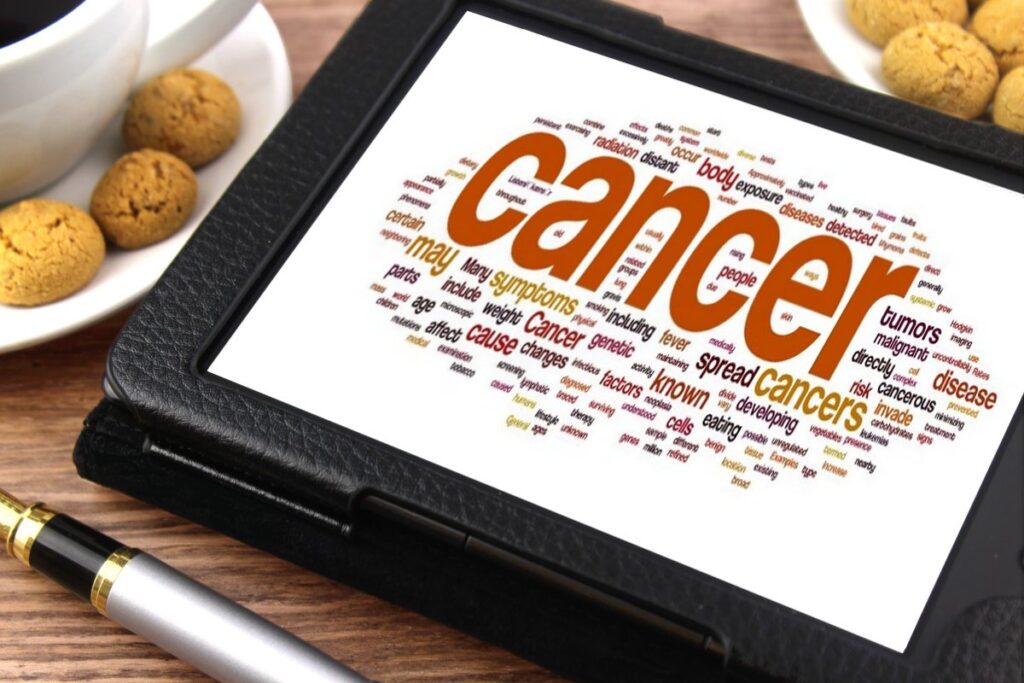Symptoms of Oral Cancer: Understand – Oral cancer is a serious medical condition characterized by the abnormal growth of cells in the oral cavity. It can affect various parts of the mouth, including the lips, tongue, cheeks, and throat. Understanding the symptoms of oral cancer is crucial for early detection and effective treatment.
Understanding Oral Cancer

Oral cancer refers to any cancerous tissue growth located in the oral cavity. There are several types of oral cancer, including squamous cell carcinoma, verrucous carcinoma, and adenocarcinoma. These cancers can develop in different areas of the mouth, such as the lips, gums, tongue, floor of the mouth, and roof of the mouth.
Common Symptoms
Oral Symptoms:
- Persistent mouth ulcers or sores that do not heal.
- Red or white patches on the gums, tongue, or lining of the mouth.
- Difficulty swallowing or chewing.
- Changes in the way dentures fit.
- Chronic sore throat or hoarseness.
Physical Symptoms:
- Swelling or lumps in the mouth, neck, or throat.
- Unexplained bleeding or numbness in the mouth.
- Persistent ear pain.
- Dramatic weight loss.
- Persistent bad breath.
Risk Factors
Several factors can increase the risk of developing oral cancer, including:
- Tobacco and alcohol use: Smoking and excessive alcohol consumption are significant risk factors for oral cancer.
- HPV infection: Certain strains of the human papillomavirus (HPV) increase the risk of oral cancer.
- Sun exposure: Prolonged exposure to sunlight increases the risk of lip cancer.
Diagnosis
Diagnosing oral cancer typically involves a combination of oral examination, biopsy, and imaging tests such as X-rays, CT scans, or MRIs. Early detection is critical for successful treatment outcomes.
Treatment Options
Treatment for oral cancer depends on the stage and location of the cancer. Options may include surgery to remove the tumor, radiation therapy to kill cancer cells, chemotherapy to destroy cancer cells, or a combination of these treatments.
Prevention
Preventing oral cancer involves adopting a healthy lifestyle, avoiding tobacco and excessive alcohol consumption, practicing safe sex to reduce the risk of HPV infection, and protecting the lips from sun exposure with sunscreen or lip balm.
Support and Coping
Receiving a diagnosis of oral cancer can be overwhelming, but support groups, counseling, and lifestyle adjustments can help patients and their families cope with the challenges of treatment and recovery.
Prognosis and Survival Rate
The prognosis for oral cancer depends on various factors, including the stage of the cancer, the patient’s overall health, and the effectiveness of treatment. Early detection and prompt treatment can significantly improve survival rates.
Case Studies
Real-life examples of individuals diagnosed with oral cancer and their treatment journeys can provide valuable insight into the challenges and successes of managing the disease.
The Importance of Early Detection
Early detection of oral cancer is crucial for improving treatment outcomes and increasing the chances of survival. Regular dental check-ups and self-examination can help detect any abnormalities in the mouth at an early stage.
Awareness and Education
Raising awareness about the risk factors, symptoms, and prevention strategies for oral cancer is essential for promoting early detection and reducing the burden of the disease. Public campaigns and educational programs in schools can help spread awareness and encourage healthy behaviors.
Future Research
Ongoing research into the causes, prevention, and treatment of oral cancer holds promise for improving outcomes and reducing the impact of the disease on individuals and communities.
Conclusion
Symptoms of oral cancer may vary, but early detection is key to successful treatment. By understanding the common signs and risk factors associated with oral cancer, individuals can take proactive steps to protect their oral health and reduce their risk of developing this serious condition.
FAQs
- What are the early signs of oral cancer?
- Early signs of oral cancer include persistent mouth ulcers, red or white patches in the mouth, difficulty swallowing, and unexplained swelling or lumps.
- How is oral cancer diagnosed?
- Oral cancer is diagnosed through a combination of oral examination, biopsy, and imaging tests such as X-rays or CT scans.
- Can oral cancer be prevented?
- Oral cancer can be prevented by avoiding tobacco and excessive alcohol consumption, practicing safe sex to reduce the risk of HPV infection, and protecting the lips from sun exposure.
- What are the survival rates for oral cancer?
- Survival rates for oral cancer vary depending on the stage of the cancer and the effectiveness of treatment. Early detection and prompt treatment can improve survival rates.
- How can I support a loved one with oral cancer?
- Supporting a loved one with oral cancer involves offering emotional support, helping with practical tasks, and encouraging them to seek medical care and join support groups.



